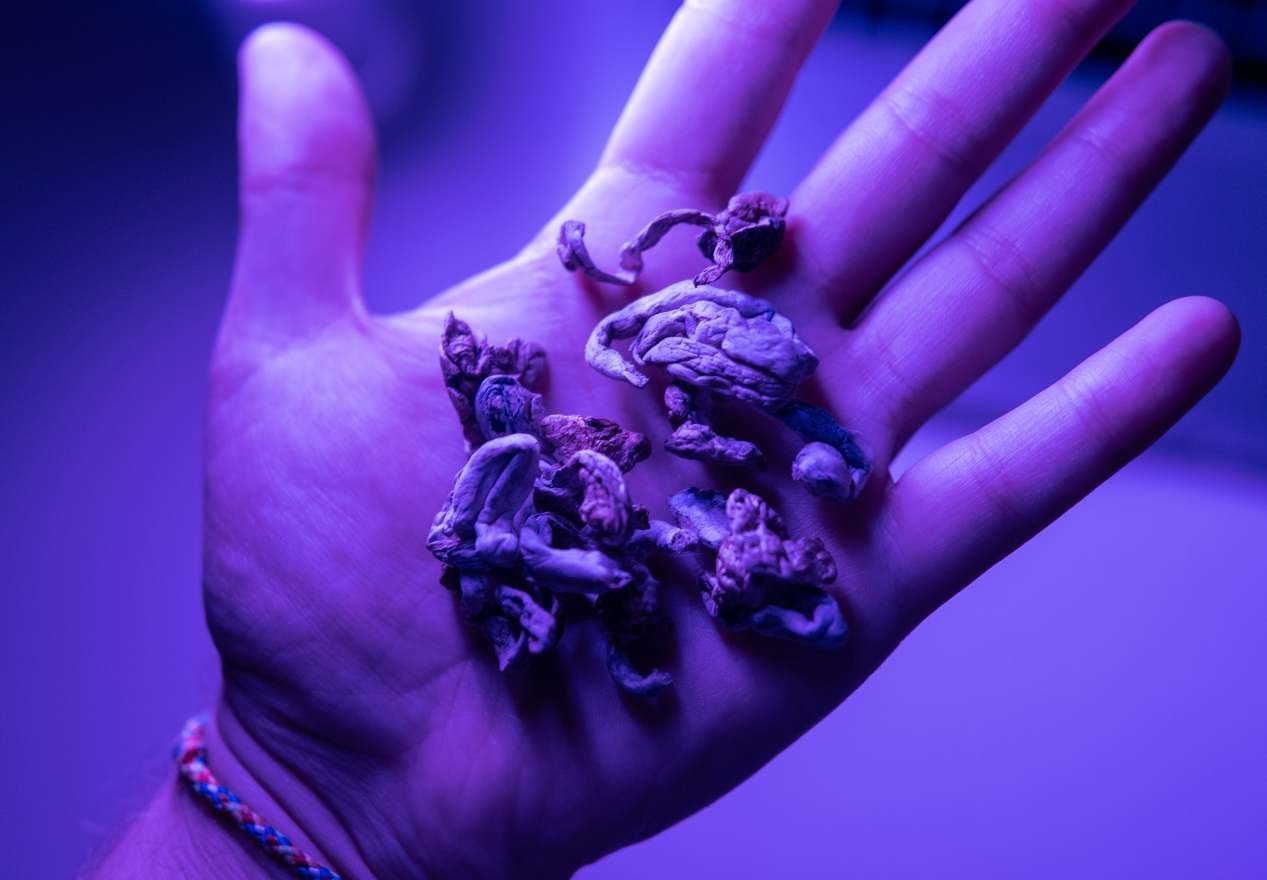Humanity needs reliable, safe, and effective tools for treating mental health issues. At the moment, all of our current drugs and techniques are unfortunately coming up short.
However, psychedelics are looking like they could change the future of mental healthcare. With so much positive research and many trials being undertaken—confidence in psychedelics is rapidly increasing.
Continue reading below to find out what role psychedelics will play in the future of mental healthcare.
Psilocybin (Magic Mushrooms)
Probably the psychedelic drug that you’ll hear the most about is psilocybin—a hallucinogenic compound that comes from magic mushrooms. Magic mushroom use has a long history that spreads far and wide across many different cultures around the globe—most notably, Central and South America.
Lately, researchers have discovered that psilocybin has a vast range of benefits for various mental health issues. On top of that, psilocybin is safe—as many clinical trials and data have shown that there have been no long-lasting adverse effects.
Psilocybin and Mental Healthcare
In a surprising move, the state of Oregon in the USA legalized psilocybin for medicinal use. The program isn’t going to begin until 2023, but we may have an idea of what that looks like.
That’s because clinical trials have been blazing the trail and finding out how to safely and effectively use psilocybin.
During psilocybin therapy, each patient gets psychological support from a specially trained therapist. The entire process can be broken down into three stages—preparation, the session, and then integration.
In preparation, the therapist and the patient get to know each other and form a trusting relationship. It’s crucial that the patient feels comfortable with the therapist who will be present during the psychedelic experience.
Then comes the psilocybin session, which takes place in a comfortable room designed specifically for a psychedelic experience. The patients take a capsule that has a predetermined dose of psilocybin based on the patient’s weight.
During the experience, patients wear an eye mask and listen to a curated playlist of music that helps them focus on their journey. The session lasts anywhere from 6-8 hours, and the therapist and an assistant are present at all times.
After the experience comes arguably the most important part—integration. Integration is when the patient discusses the experience with their therapist.
Integration aims to gain insight and ideas from the experience, which can help the patient change behavioral and negative emotional patterns.
This process would be the same for those with major depression and anxiety. It remains to be known if there would be a different process for treating those with addiction.
It remains to be known if someday psilocybin would be used to help people who don’t have any of these disorders. After all, it seems that psilocybin therapy could help people find meaning and purpose in their lives or at least lead to positive changes.
Furthermore, it’s believed that psilocybin could also be used for end-of-life care for those with terminal illnesses.
Iboga or 18-MC for Addiction
Another psychedelic being researched at the moment is known as iboga. Iboga comes from Tabernanthe iboga, a plant native to West Africa. This psychedelic was being looked at as a potential treatment for addiction.
That’s because iboga creates a psychoactive experience that helps users recall their past—which researchers have called panoramic recall. However, due to safety issues, a non-psychoactive version of the plant was created called 18-MC.
Although 18-MC isn’t psychoactive, it’s claimed that it still has the same anti-addictive properties as iboga.
Iboga or 18-MC Therapy
Recent studies in New Zealand and Mexico are shedding light on how iboga therapy might work. Its main use could be for reducing opioid withdrawal and use.
First, patients are checked thoroughly by a doctor to make sure that iboga use would be safe and that they weren’t taking any drugs that could interact with the iboga.
Then, one session of iboga is administered, and the patients are looked after during the duration of the trip. Patients are looked after for three days after the session by a doctor and specially trained drug counselor.
For the following months, the patient must stay in touch with the counselor to track their progress. In many cases, drug withdrawal eases and after a few months the cravings stop.
At the moment, it’s unknown how 18-MC therapy would work. The compound is owned by a company called MindMed, and their trials don’t have public data yet.
MDMA for PTSD
Although not a classic psychedelic, MDMA is making waves in psychiatric medicine for being able to help those with Post-Traumatic Stress Disorder (PTSD). PTSD is a difficult to treat mental condition that isn’t helped effectively by current medication.
However, in 2010, MDMA was shown to reduce PTSD symptoms by a wide margin. Since then, MDMA has made the fast track to becoming an FDA-approved medicine.
MDMA Therapy
MDMA therapy takes place over the course of about three months, which consists of two or three sessions. Like other psychedelic therapies, trained professionals talk with each patient beforehand.
During the session, patients are given a dose of MDMA—which can last up to 8 hours. During those hours, two psychotherapists will be present during the whole session to help the patients work through their traumas.
Afterward, patients will stay in touch with psychotherapists as a follow-up. The result of the session will lead patients with PTSD to do more self-reflection and open up about difficult emotions, which is the path to PTSD recovery.
The Future of Mental Healthcare Looks Bright
These treatments are only scratching the surface of what’s to come as more research is done on a variety of psychedelics. In the future, we could have ayahuasca ceremonies, peyote ceremonies, and ketamine therapies.
Although many people remain skeptical about the healing power of natural and artificial psychedelics–they can’t be ignored any longer. To do so would not only be irresponsible but would prolong the suffering of many people who could benefit from these drugs now and in the future.





No Comments